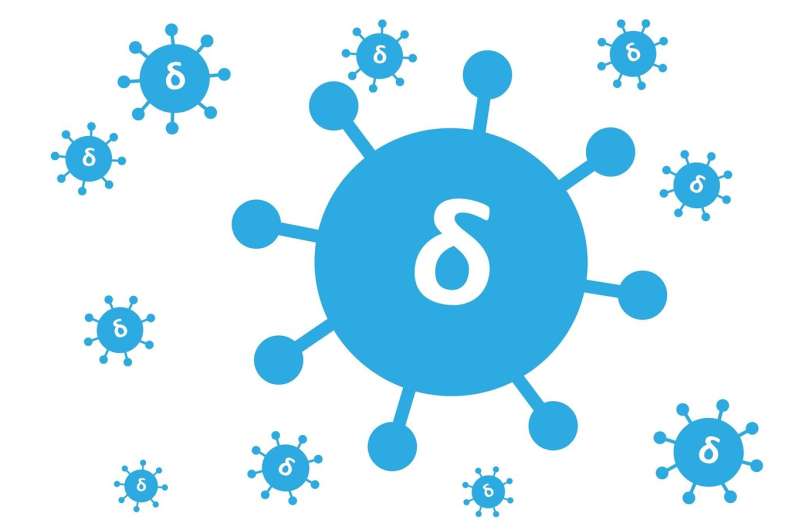
England lifted most pandemic restrictions Monday despite surging infections and dire warnings from experts, as the Delta variant sweeps parts of Europe and Asia, where new cases are threatening to scupper the upcoming Tokyo Olympics.
As England celebrated so-called “freedom day”, Vietnam locked down much of its population, while Indonesia clocked daily record deaths and in France lawmakers were set to toughen vaccine rules to battle rising cases.
The highly transmissible Delta variant, first detected in India, is driving new outbreaks along with a relaxation of measures, as countries seek to kickstart virus-battered economies.
In Britain, daily infections have climbed, averaging more than 50,000 since last week, with Delta taking hold in many areas.
But despite accusations against the UK government of recklessness, it lifted legal mandates on social distancing, wearing masks and working from home, urging personal responsibility instead.
‘Moral emptiness’
Nightclubs in England reopened their floors to dancers at the stroke of midnight for the first time since March 2020, while sports stadiums, cinemas and theatres can now run at full capacity.
“I thought, well, we missed New Year’s, so why not come out and celebrate?” said Nicola Webster Calliste, 29, outside a club in Leeds, northern England.
“It’s like a new chapter.”
Alex Clarke, 40, was at the front of the queue outside a club in north London.
“There’s a bit of apprehension and uncertainty about the protocols,” Clarke said. “But as long as everyone is sensible, then it’ll be alright.”
COVID-19 travel rules and self-isolation for close contacts remain in place.
Prime Minister Boris Johnson—who is self-isolating after his health minister was infected—has defended the move, dubbed “freedom day” by some media, but urged people to remain prudent.
The government says thanks to a rapid vaccination programme, the risks to the healthcare system are manageable.
But the approach is marked by “moral emptiness and epidemiological stupidity”, said University of Bristol public health expert Gabriel Scally.
Elsewhere in Europe, countries including Greece, the Netherlands and Spain, have been forced to reimpose restrictions to battle new outbreaks recently.
And in France, cabinet members were expected on Monday to approve stricter vaccination rules requiring people to show either proof of full vaccination or a recent test to enter public venues such as restaurants, bars, shopping centres, long-distance trains and cinemas.
New global hotspot
The coronavirus is known to have claimed more than four million lives since it emerged in late 2019 but, for some nations in the Asia-Pacific, the worst is still ahead.
Indonesia has in recent days overtaken India and Brazil as the global COVID-19 hotspot, its daily death toll hitting a record 1,338 on Monday.
There are fears people travelling for the Eid al-Adha festivities could spread the virus further, and authorities in the vast Muslim-majority country strengthened roadblocks on Monday for the start of the holidays.
Vietnam ordered about a third of its 100 million people to stay at home in several provinces as it battles new outbreaks—with a record 6,000 new daily infections reported.
Although Australia has enjoyed far lower case numbers than most nations, it is also struggling with outbreaks in its two biggest cities, Melbourne and Australia.
Melbourne extended a lockdown, meaning roughly 12 million Australians will remain under some form of stay-at-home order.
In Myanmar, where hospitals are empty because of a long-running strike against the military junta, volunteers are going house-to-house to collect bodies for burials.
“We are running our service without resting,” Than Than Soe told AFP at the bustling office of her volunteer group.
Olympics dampened
And as organisers finalised preparations for the 2020 Olympics—set to open Friday with no spectators and with Tokyo under a state of emergency after a surge in cases—four virus cases were confirmed in the athletes’ village.
And on Monday a female American gymnast tested positive at an Olympic training camp, while another team member is self-isolating.
The cases put a damper on the upcoming games, which have failed to secure much public support in Japan.
The latest Asahi Shimbun newspaper poll found a majority of respondents, 55 percent, were against holding the Games this summer, with 33 percent in favour.
In a sign of the current sentiment, auto giant Toyota said it would not run Olympics-related TV ads, and its executives will not be present at the opening ceremony.
Source: Read Full Article